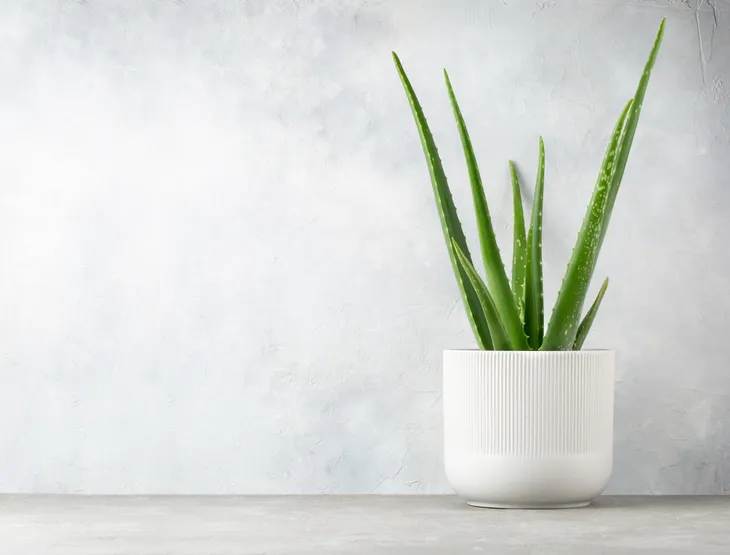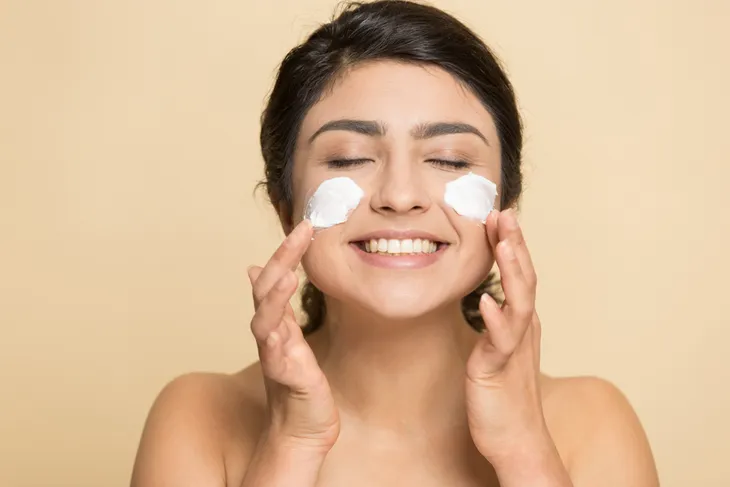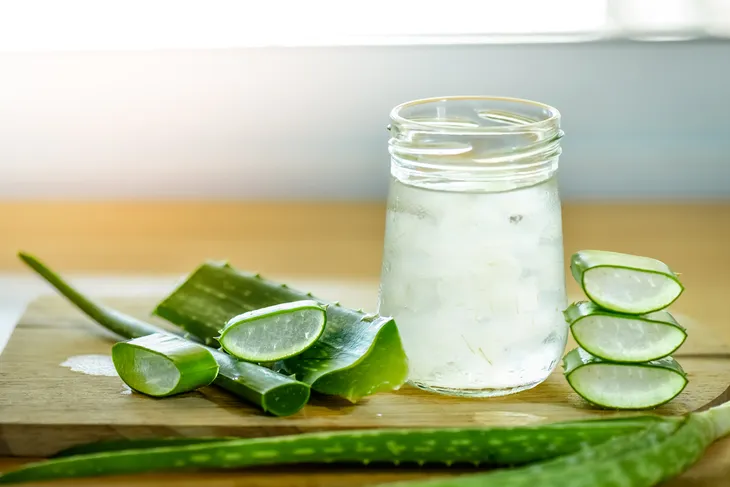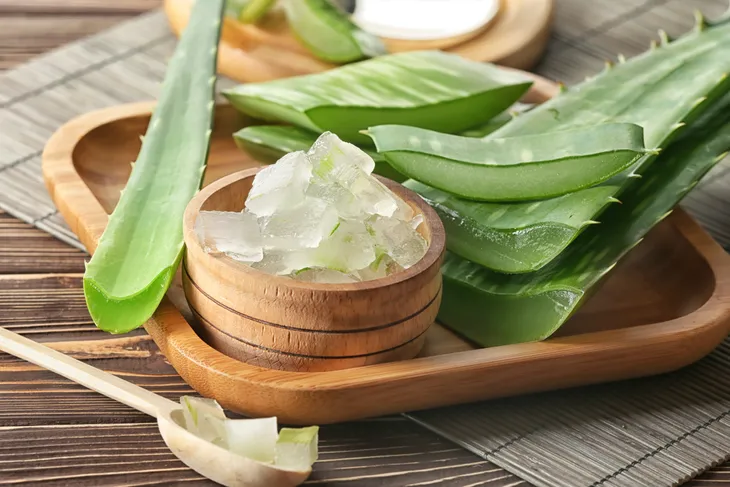Don’t let its prickly exterior give you the wrong idea. This popular potted plant has been easing discomfort and healing wounds for thousands of years. It’s in shampoos, conditioners, moisturizing creams, and balms, but the practical uses for aloe vera go far deeper than the surface of the skin.
In this article, we dive deeper to find out how many different ways you can use aloe vera. From promoting hair growth to improving digestive health there are many unique uses for aloe vera. Let’s explore these next!
What is Aloe Vera?
You probably know what it looks like, but few know more than that. Aloe vera is considered an evergreen perennial that is only native to the southeast Arabian Peninsula. More specifically in the north-eastern mountains of Oman.
That’s not the only place aloe vera can grow though. This versatile plant has been cultivated for thousands of years and has since become naturalized in Northern Africa, Sudan, the Canary Islands, Portugal, and more.
As a potted houseplant, aloe vera is easy to take care of too. The plant doesn’t need a lot of direct sun or much water to survive and thrive, which is another reason they’re so popular.
Improves Digestive Health
Aloe vera is commonly used as an ointment for topical skin abrasions like rashes, burns, and bug bites, but it may be helpful internally as well.
A study that dates back to 2018 discovered a possible use for aloe vera as a short-term treatment for irritable bowel syndrome. Not only did the study report extremely positive results for the IBS sufferers who participated, but it also reported no adverse side effects to the treatment. Another study showed that aloe vera consumption inhibited the growth of ulcer-causing bacteria.
For Oral Health
Plaque, candida, and gingivitis are no match for the versatile aloe vera plant. This study tracked the effectiveness of toothpaste containing aloe vera versus traditional toothpaste and the results were significant.
In the study, it took just 30-days of regular aloe-vera toothpaste use to see a significant reduction in gingival inflammation and plaque index scores when compared to the other group. Aloe vera does contain anti-inflammatory and antibacterial properties after all, so it’s no surprise that it can help ease pain, swelling, and discomfort in the gums.
Clears Acne
You may need more than just aloe vera to treat acne, but science continues to proclaim the effectiveness of aloe vera’s complementary properties. A study from 2013 used aloe vera alongside topical tretinoin. The results showed that there was a significant increase in the combination’s success when compared to those that relied solely on tretinoin.
Further, the regular application of aloe vera gel to the acne-affected area has been shown to ease the hyperpigmentation of acne scars. It may also soothe the affected area.
Makes a Natural Shaving Cream
If your toiletry stockpile is depleted, or you’re simply on the hunt for a natural alternative to the instant-foaming stuff, consider concocting an aloe gel-based shaving cream.
A ½-cup of aloe vera gel, 1 teaspoon of vitamin oil, 1 teaspoon of vegetable glycerin, and 2 teaspoons of fractionated coconut oil can be mixed inside an airtight container for an eco-friendly alternative that hydrates and soothes your skin. Heck, you could even mix in a few drops of the essential oil of your choice for a little extra customization.
Ease Itchy Scalp
Life with an itchy scalp can certainly be annoying. Thankfully, aloe vera gel may be able to help with this too.
Dandruff, or seborrheic dermatitis, can be treated with aloe vera. The popular, plant-based remedy has been shown to help remedy the scalp inflammation that comes as a result of dandruff. But wait, there’s more!
Aloe has also been shown to strengthen and repair hair strands, deeply clean oily hair, and may even promote hair growth.
Eases Heartburn
Aloe vera can be more than just a topical ointment. Extracting the juices and consuming them can combat the prevalent symptoms of gastroesophageal reflux disease.
The science reports tie a steady diet of aloe vera to a reduction in the frequency of GERD symptoms including heartburn, food regurgitation, flatulence, belching, dysphagia, nausea, vomiting, and acid regurgitation in as little as four weeks.
Lowers Blood Sugar
Aloe vera is loaded with 75 active components including vitamins, minerals, enzymes, and amino acids. As a result, more and more labs are researching its propensity as a treatment for all sorts of things.
In diabetics and prediabetics, the research suggests that supplementing aloe vera juice can lower fasting blood glucose levels and lower HbA1c averages with few known side effects.
Having said that, consumption of aloe vera juice should be used with caution. When used in conjunction with prescribed diabetes medication, aloe vera juice could cause your blood sugar to crash and may even lead to hypoglycemia. All the more reason to visit your doctor whenever you’re thinking about making modifications to your treatment.
Unique Ways to Use Aloe Vera
Talk about versatility! Aloe can help improve digestive health, clear acne, ease heartburn, and lower blood sugar. And that’s before we talk about all the other practical uses that we already know about.
If you aren’t already on your way to the local garden center to pick up a plant of your own, you should probably add a bottle of aloe vera extract to your shopping cart soon. It is without a doubt a practical addition to your household supply list and deserves a permanent place in every medicine cabinet in America.












